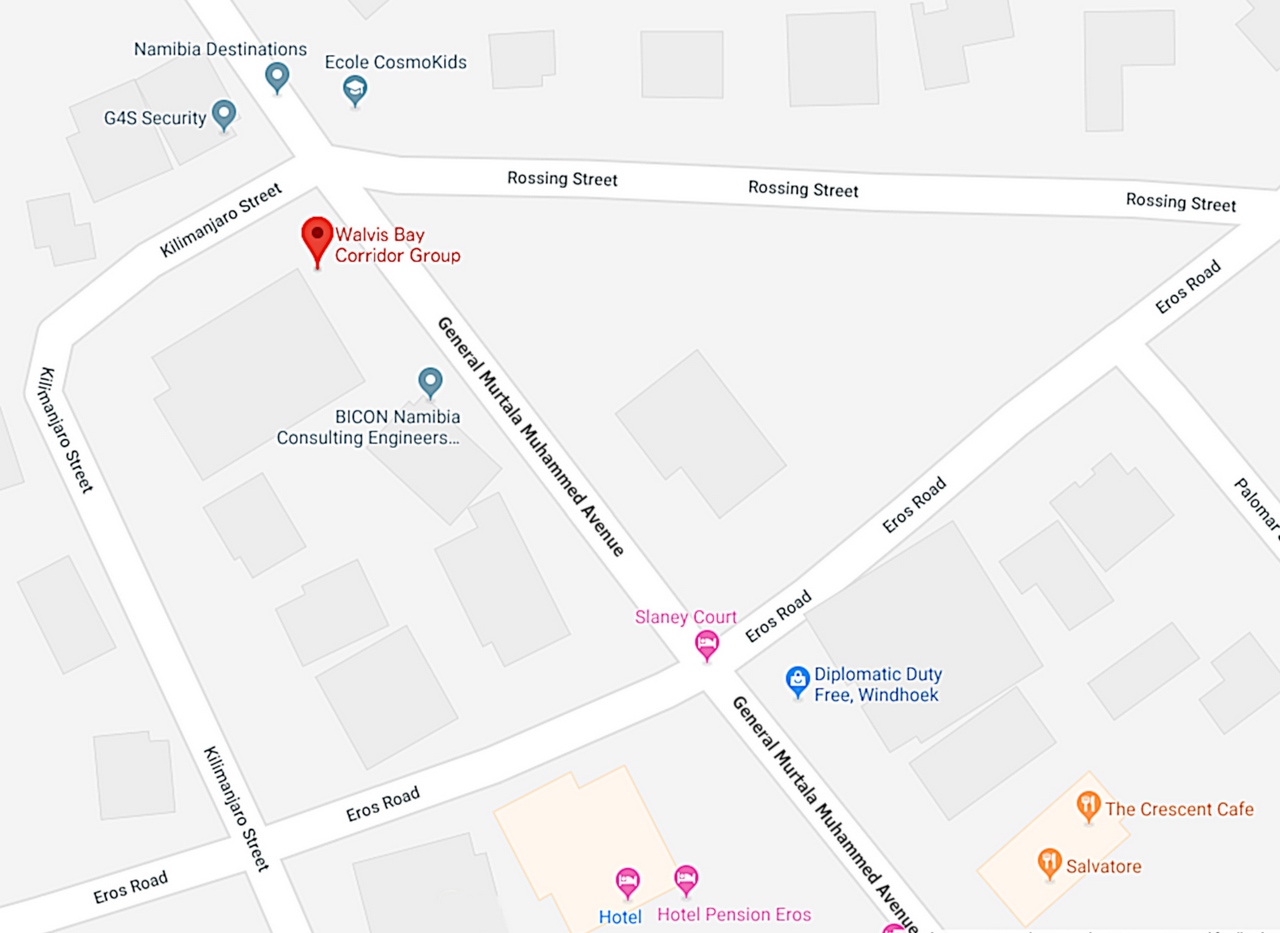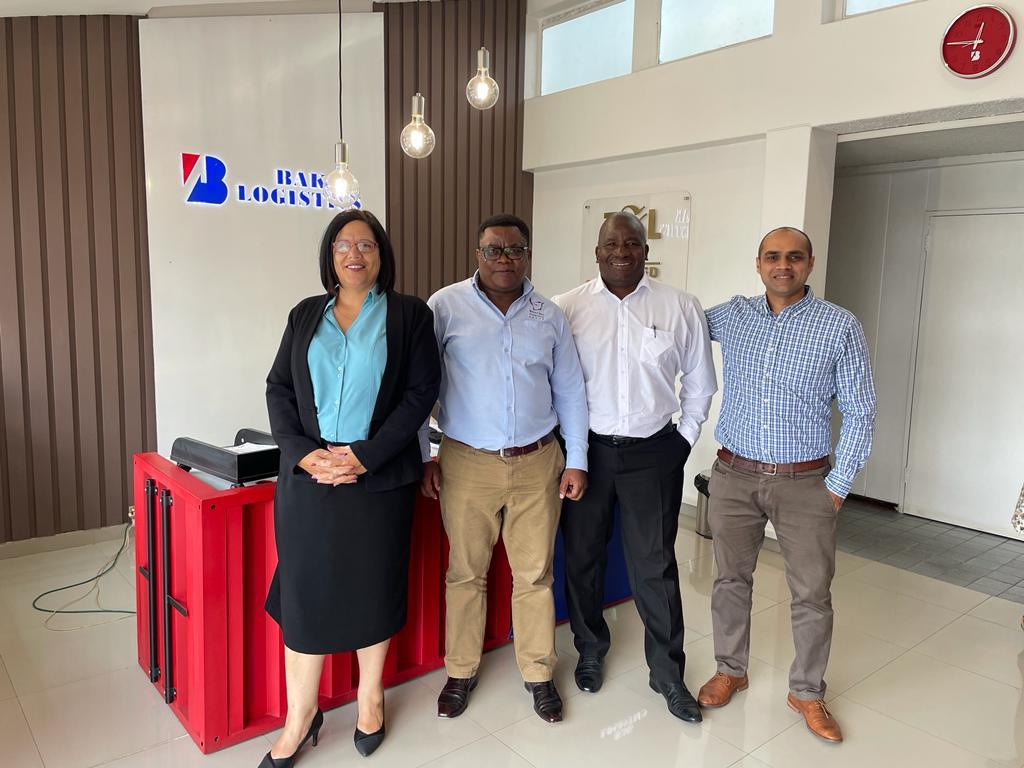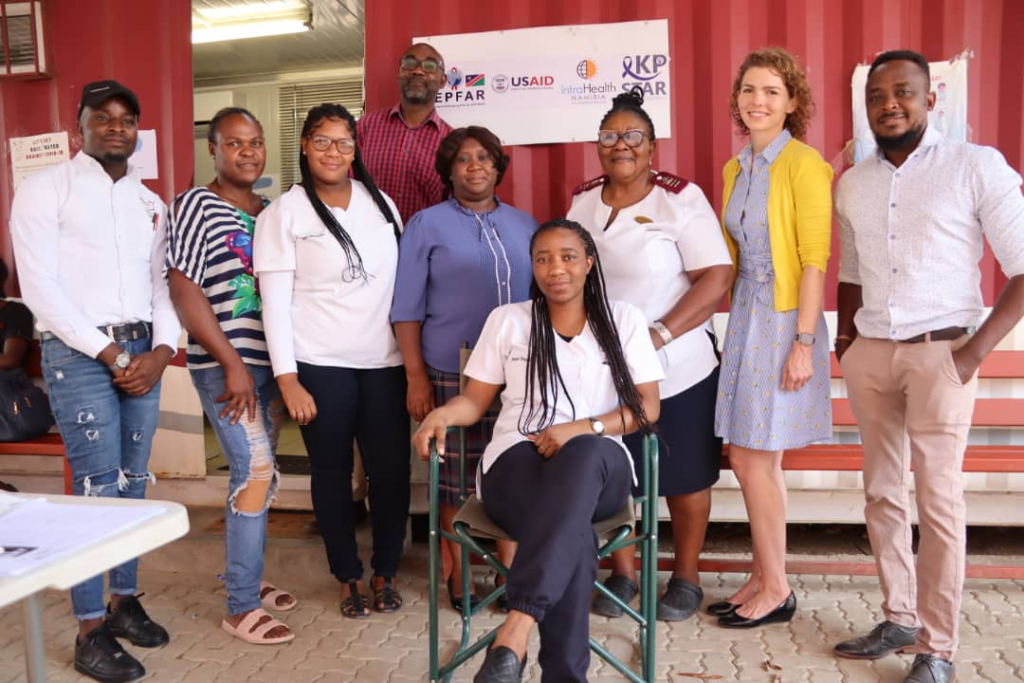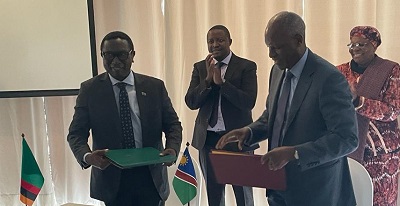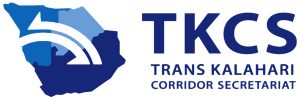
The Trans Kalahari Corridor Secretariat (TKCS) is a tripartite trans-boundary Corridor Management Institution that was established with a political and economic vision to pursue or contribute towards deeper regional integration programs of SADC, SACU and NEPAD.
The Secretariat oversees the day to day administration and operations of the agreement under the Trans Kalahari Corridor Management Committee (TKCMC) leadership, who serves as the transmission for the regulation and oversight of the development and implementation of seamless cross border trade, transport and passenger facilitation measures that enhance growth of corridor business along the Trans Kalahari Corridor.
The Trans Kalahari Corridor Management Committee, a joint regional committee with rotatory chairmanship, was initiated and established by Namibia’s Ministry of Works, Transport and Communication in conjunction with the Botswana and South African Governments as well as private sector transport representatives. It acts as a regional Corridor Facilitation Committee under the SADC Protocol on Transport, Communication and Meteorology. Key actors of the TKCMC PPP arrangement include Transport Ministries/Departments, Transport Agencies, Customs Administrations, Immigration Authorities, Police Services, Port Authorities, Road Transport Associations, Freight Forwarders and Clearing Agents. Operationally the Technical Working Groups and the Trans Kalahari Corridor Secretariat (TKCS) support the TKCMC. Among the Committee’s achievements is the introduction of the Single Administration Document (SAD 500), which ensures commercial traffic clearance of between 20 to 30 minutes at the border points on the corridor. This procedure is being rolled out to other corridors in the region.
The TKCS was established on 1 March 2007, with its Headquarters located in Windhoek, Namibia.
Read more on the TKCS website
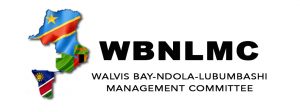
The WBCG serves as the interim secretariat of the Walvis Bay-Ndola-Lubumbashi Management Committee (WBNLMC). The Memorandum of Understanding (MoU) signed in March 2010 between the Ministers responsible for transport of the DRC, Namibia and Zambia, establishing the WBNLMC, is aimed at facilitating trade along the corridor, movement of persons and goods, regional and international transport; stimulate economic and social development in the territories of the contracting parties, transform the corridor into a development corridor, offer safe, fast and competitive transport and transit services that secure regional trade.
The Committee aims to replicate the Trans Kalahari Corridor cross-border facilitation programme for the Walvis Bay-Ndola-Lubumbashi Development Corridor.
UNCTAD’s Capacity-building Programme identified the WBNLDC as a model corridor in Africa, and consequently supported the development of the Corridor’s Cluster Committee. The second regional body, namely the WBNL Cluster Committee, comprises of public and private transport representatives, meet twice a year to address corridor concerns.
These two committees together identify and harmonise cross-border standards and address bottlenecks to trade between the corridor member countries.
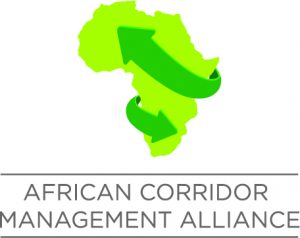
The African Corridor Management Alliance (ACMA) was established by the continent’s Corridor Management Institutions (CMIs) supported by the United Nations Economic Commission for Africa in 2015. The ACMA aims to provide the corridor states with lessons, practical tools for the design, capacity development and successful implementation mechanisms for economic corridors.
The ACMA secretariat, hosted by the WBCG, assists in unbundling, prioritising and sequencing of corridor-orientated initiatives into the pipeline of bankable sub-projects, facilitating private sector engagement and addressing issues of enabling environment in collaboration with CMIs in addition to aiding of resource mobilisation in collaboration with financing institutions.
The African Corridor Management Alliance aims to be a prime driver of a self-sustaining Africa.
